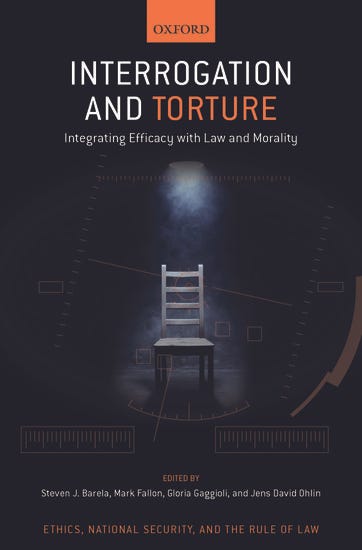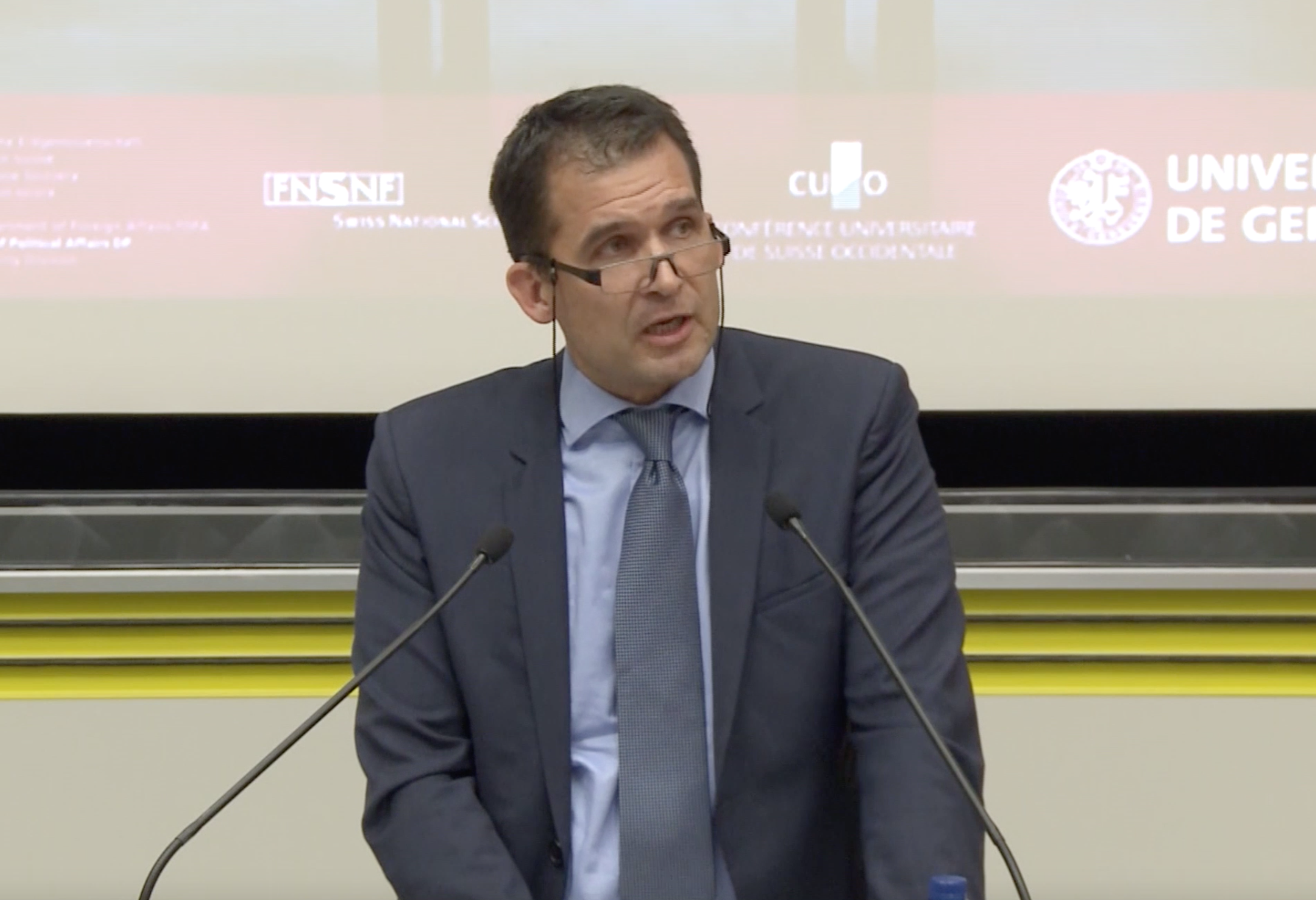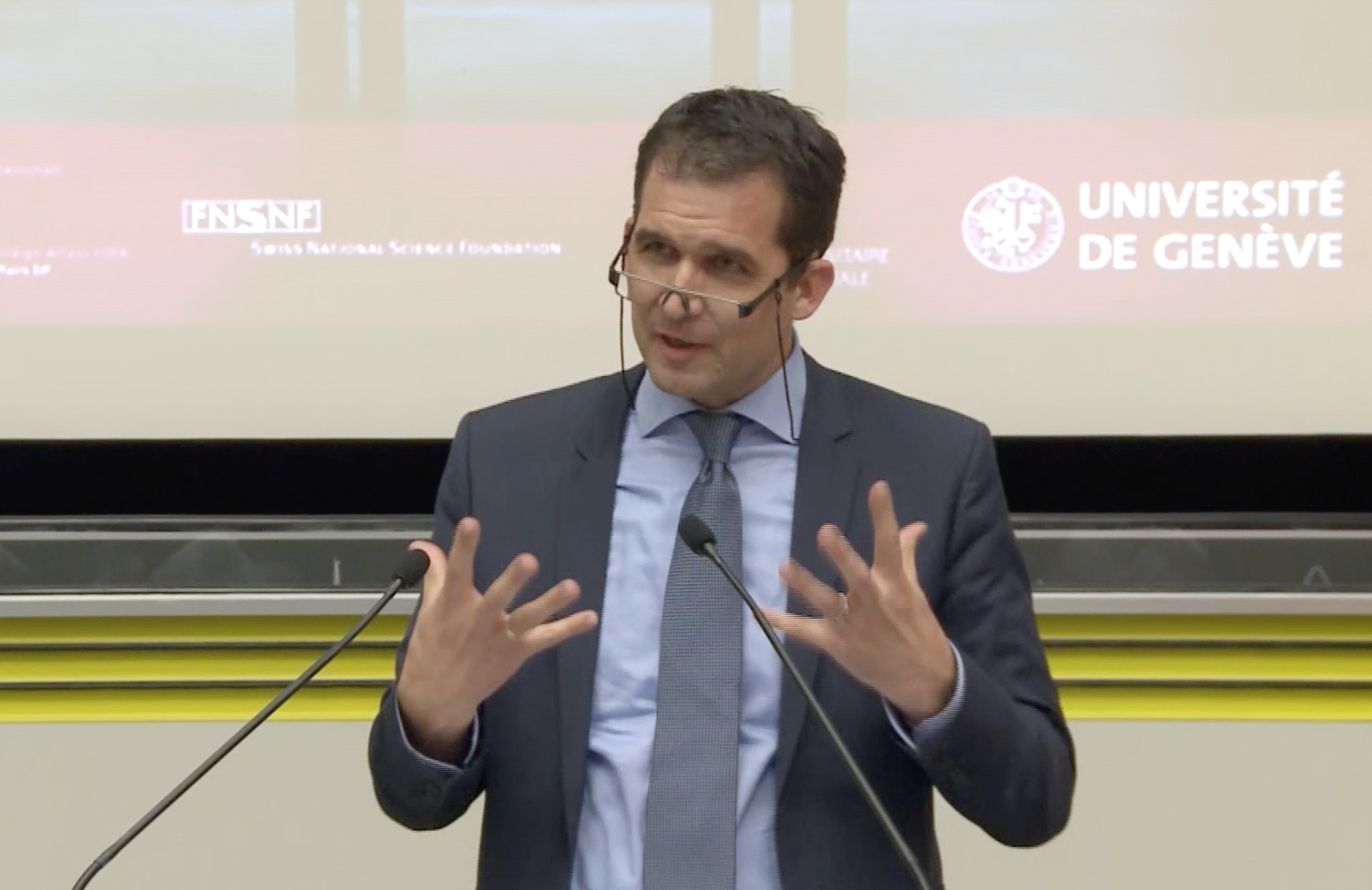Pay the price for speaking out, rather than the price for keeping silent!
Keynote Address by UN Special Rapporteur on Torture, Nils Melzer, University of Geneva, 10 December 2019
December 10, 2019
Today, we celebrate Human Rights Day. On this day, 71 years ago, the United Nations General Assembly adopted the Universal Declaration of Human Rights, this historically unique and extraordinarily powerful instrument, which arose from the ashes of World War II, recognizing that “disregard and contempt for human rights have resulted in barbarous acts which have outraged the conscience of mankind”. Epitomizing a new world order based on human rights and dignity, its article 5 proclaims that “no one shall be subjected to torture or to cruel, inhuman or degrading treatment or punishment”.
Dear friends and colleagues, Ladies and Gentlemen,
Today, hardly any norm of international law commands as much consensus and authority as the prohibition of torture. It is universally recognized as absolute, non-derogable and peremptory. It protects all human beings without discrimination and in all situations without exception, it cannot be restricted even in war and other situations of public emergency, it cannot be abolished even by treaty, and any contradicting legislative, administrative or judicial act is not only inherently unlawful, but originally void. States must prevent torture throughout their jurisdiction, may not transfer anyone to another jurisdiction where they may be exposed to torture, and may not use any information obtained through torture in any jurisdiction. In criminal law, violations of the prohibition of torture invariably figure among the gravest offences, including war crimes and crimes against humanity, and must always be investigated and prosecuted as a matter of universal jurisdiction.
This, in a nutshell, is the international law on torture.
In reality, however, torture is still practiced with disturbing frequency and near complete impunity in all regions of the world. To this day, not a single country in the world can claim in good faith to have completely eradicated such abuse. Torture is used to interrogate, but also to otherwise coerce, intimidate, punish and discriminate. It is used to break resistance, force confessions, and silence witnesses, to extort money, sex or cooperation, to deter migrants, exploit labor, and subdue political opponents, and to terrorize, disempower and humiliate a wide range of dissident voices and marginalized segments of society. Every day, people are being prevented from leaving, or are extradited, deported, or returned to countries where they face near certain torture, rape or murder. Every night, countless children, women and also men face violence, abuse and even death in their own homes, often with the complacency of their communities and the acquiescence of the State. This, too, is torture. In recent years, it has become increasingly acceptable for politicians to promote responses to terrorism, narcotics, criminality and migration that are clearly incompatible with the prohibition of torture, and even contemporary mainstream entertainment portrays torture as an effective means of last resort in the everlasting struggle between good and evil.
So, what has gone wrong? How can reality deviate so drastically from one of the most authoritative legal provisions ever codified in human history? Does the prohibition of torture no longer reflect the moral imperatives and utilitarian pragmatism of our time?
From a moral standpoint,torture, along with slavery and genocide, doubtlessly has come to exemplify absolute and unforgivable evil. Even those who openly promote coercive interrogation generally do so under the guise of euphemisms, such as “enhanced interrogation” and “pressure techniques”, and may even refer to specific methods, such as “waterboarding” or “stress positions”, but would never admit that what they are advocating is nothing else than torture. This moral consensus is remarkable given that, for most of human history, torture was common practice and morally accepted as a byproduct of absolute power.
The peremptory prohibition of torture has grown out of the horrors of World War II, and it is no coincidence that it begins to erode again precisely at the time when the last witnesses of those horrors are passing away. The moral imperative of the prohibition of torture still is a fairly recent achievement, too recent perhaps to be sufficiently immune to bad faith attacks in the face of purportedly existential threats.
The problem is not that the prohibition of torture no longer reflects our moral values, but that our common perception of torture no longer reflects the reality of torture, that we have become totally disconnected from the dirty truth of what torture really is and what torture really does, not only to its victims, but also to its perpetrators and to any society tolerating such profoundly dehumanizing abuse.
It is not true, that methods such as waterboarding, stress-positions, sleep-deprivation or prolonged solitary confinement are somehow different than “real” torture. They all aim at inflicting excruciating pain or anguish for purposes of interrogation, intimidation or punishment. They are, plain and simply, torture — nothing less.
Contrary to what mainstream TV makes believe, it also is not true that such methods could ever be used in a “sanitized” way, as some kind of “half-legal” means of last resort to neutralize the threat of the proverbial “ticking bomb”.
The reality of torture is dirty, it is ugly, it stinks of vomit, blood and excrements, it is sickening, heart-wrenching and absolutely horrifying; no one who has ever faced the reality of torture could ever still cling to the illusion of it being compatible with humanity, with dignity, with any notion of respectable and responsible human life.
Those who know the reality of torture, those who have suffered it, those who have inflicted it and those who have tried to heal the physical, mental and emotional wounds resulting from it, know that torture destroys deeply, utterly and irreversibly. That it destroys not only the physical, mental and emotional integrity of the victim, but also that of their torturer, and that of their families, and that of the societal system and, ultimately, the moral and cultural integrity of mankind as a whole.
Torture, ladies and gentlemen, is the moral abyss of mankind, it is the sacrifice of our humanity on the altar of our fears, it is the total capitulation not only of our personal integrity but, in its extreme consequence, it is the very end of civilization itself. Let us not fool ourselves. The truth is that any tolerance, any complacency and any acquiescence concerning the threat or use of torture, however exceptional and well argued, will inevitably lead down a slippery slope towards complete arbitrariness and brute force, ultimately ending in disgrace for all of humanity. Unless we wake rapidly from our collective amnesia and stop the current downward spiral, humanity may well have to learn the same lesson again the hard way.
Torture, ladies and gentlemen, is the moral abyss of mankind, it is the sacrifice of our humanity on the altar of our fears, it is the total capitulation not only of our personal integrity but, in its extreme consequence, it is the very end of civilization itself.
Let us not fool ourselves. The truth is that any tolerance, any complacency and any acquiescence concerning the threat or use of torture, however exceptional and well argued, will inevitably lead down a slippery slope towards complete arbitrariness and brute force, ultimately ending in disgrace for all of humanity. Unless we wake rapidly from our collective amnesia and stop the current downward spiral, humanity may well have to learn the same lesson again the hard way.
From a utilitarian perspective,we rightly celebrate scientific evidence demonstrating the ineffectiveness of torture for the extraction of reliable information, but we tend to forget that these findings do not come as a surprise to the torturers themselves. Throughout history and across cultures, interrogators, prosecutors and judges may have been cruel, corrupt or indifferent, but the inherent unreliability of any information extracted under excruciating pain and anguish cannot possibly have escaped their common sense.
The only convincing explanation for the continued use of interrogational torture throughout all times and contexts is that its primary purpose never was to find the truth, but always has been to dictate or suppress the truth, or to otherwise dominate, coerce and intimidate — tasks for which torture is very effective.
The real paradigm shift of non-coercive interviewing lies not in scientifically demonstrating the ineffectiveness of torture for the extraction of reliable information, but in unveiling the true purpose of all coercive interrogation. It exposes how ruthlessly States practicing coercive interrogation are betraying their lip service to the letter of the law, and how complacent or even complicit they are with the corrupted logic of forced confessions, which so conveniently intimidate opponents, produce culprits and scapegoats, and reduce the judicial case-load in short, effortless and inexpensive proceedings, but which also make a complete mockery of human dignity, justice, and the rule of law.
Ladies and Gentlemen,
Let us be clear: as inhumane as torture may be, it is also an exclusively human experience. Torture is seductive. Just like the forbidden fruit in the garden of Eden, it promises the „knowledge of good and evil“; and just like the serpent’s lies, the whispers of torture invariably lead into an abyss of cruelty, darkness and self-destruction. Torture may promise power and control in times of threat and vulnerability but, much like an addictive drug, it delivers nothing but illusions, shame, and a growing sense of desperation, which can only be suppressed by ever higher dosages of the same drug — more violence, more coercion, more domination, more pain, suffering and humiliation.
How else can we explain that Khaled Sheikh Mohammed was put through the agony of drowning to death on the waterboard a grotesque 183 times, without any reliable intelligence being extracted? Of course, this case is but an emblematic example for the poisonous entrapment which resulted from the CIA‘s fall for torture after the traumatic events of 9/11. It illustrates the legal and moral dead-ends of any attempt to whitewash organized cruelty, and shows the viciousness with which systematic torture corrupts not only the integrity of investigative processes, but also the capability of constitutional checks and balances to ensure effective oversight and accountability.
While the US Senate Committee’s 7000-page report of 2014 has been celebrated as a historic victory of American democracy, unfortunately that victory has been immediately lost to classification, extensive censorship and total impunity for all perpetrators, instigators and accomplices. Without transparency, investigating the truth is but a fig-leaf for complacency. Without accountability, however, it turns into outright complicity.
Without transparency, investigating the truth is but a fig-leaf for complacency. Without accountability, however, it turns into outright complicity.
We must understand that torture is not only incompatible with any notion of human dignity, not only an ineffective fact-finding method, but that it also cripples any subsequent judicial proceeding as all information so extracted from the suspect automatically becomes inadmissible as the so-called “poisonous fruit” of torture. We must also be aware of the mortal dangers for democracy and the rule of law, which arise from governmental secrecy and impunity, both of which are inherent in any State policy of torture.
Unfortunately, in failing to ensure accountability for the crime of torture, the prominent example given by the United States has set a deplorable precedent which has already found zealous apprentices elsewhere in the world. Most notably, despite a parliamentary investigation reporting substantial British involvement in CIA torture and extraordinary rendition, the UK Government recently officially declined to allow a judicial inquiry into the matter. Israel openly justifies «special interrogation methods» that repeatedly have been reported to inflict severe suffering and injury. And the European Union, Australia and many other countries around the globe do not appear to see any problem in adopting and implementing policies and practices knowingly exposing thousands of irregular migrants to rape, torture, and murder — every day, right on the doorsteps of their fortified and militarized borders. Given the contagiousness of these policies and practices even among states traditionally committed to democracy and the rule of law, the book “Interrogation and Torture” is not only timely, it is overdue and may well be a last-minute wake-up call before we are heading towards another one of humankind’s dark ages.
In order to overcome the scourge of interrogational torture, neither its absolute prohibition, nor its universal moral condemnation, or its demonstrated ineffectiveness for any legitimate purpose are sufficient in themselves.
 By integrating all three perspectives and cleaning up with a broad range of myths and misconceptions, the authors contributing to the book “Interrogation and Torture” jointly expose the ugly truth of torture and make an incontrovertible call for the eradication of coercive interrogation, in fulfillment of the unequivocal promise made by the Universal Declaration of Human Rights to all members of the human family:
By integrating all three perspectives and cleaning up with a broad range of myths and misconceptions, the authors contributing to the book “Interrogation and Torture” jointly expose the ugly truth of torture and make an incontrovertible call for the eradication of coercive interrogation, in fulfillment of the unequivocal promise made by the Universal Declaration of Human Rights to all members of the human family:“No one shall be subjected to torture or to cruel, inhuman or degrading treatment or punishment.”
Ladies and Gentlemen,
This is not a time for hesitation and compromise, but a time to speak out clearly, to pull our strengths and resources together, a time to renew our spirit and values, a time to focus and push ahead.
The responsibility to fight against torture and to uphold human dignity falls on all of us, on you, on me and on countless other men and women in all corners of this planet. For it is us who elect or tolerate our governments, it is us who turn a blind eye on the suffering of our neighbour and, ultimately, it is all of us together who determine public opinion. There is no guarantee that our speaking out will stop mankind from taking another collective tour through the darkest depths of human nature.
To do all we can do and still to fail is one thing. But to fail to do what we can do, is quite another. Speaking out comes at a price. But then, keeping silent comes at a price, too. As far as I am concerned, I would rather pay the price for speaking out than the price for keeping silent!



No comments:
Post a Comment